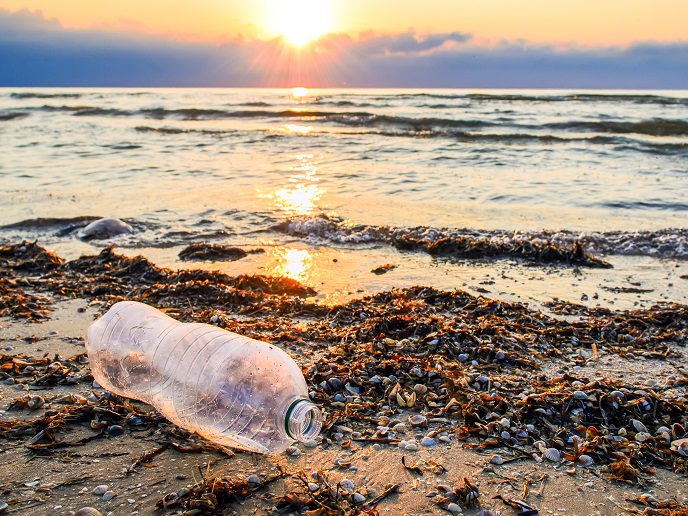Sustainable and innovative solutions to tackle the plastics crisis in our oceans and seas
Plastic – it’s everywhere in our daily lives: around the food we eat, in the clothes we wear and the houses we live in. Due to its functionality, durability and low cost, plastic constitutes an essential ingredient of our modern life. But if not disposed of properly, plastic pollutes the environment causing substantial environmental and economic damages.
A pressing political priority...
Unfortunately, our oceans and seas are already heavily polluted with plastic, which can be found in even the remotest areas of the planet such as the Arctic. Every year, between 4.8 and 12.7 million tonnes of plastic end up in the ocean threatening marine life and causing damage to the economy. Plastic pollution in the ocean costs the EU up to EUR 690 million per year, resulting from beach and coastal clean-ups as well as negative impacts on the fishing and aquaculture industry. Tackling this problem is a political priority of the European Union. In December 2018, the EU institutions reached a provisional agreement on measures to reduce marine litter at source through market restrictions, design and collection requirements and extending producer responsibilities, targeting the 10 plastics products most often found on beaches as well as abandoned fishing gear that together constitute around 70 % of all beach litter items. That agreement was based on the Single-use plastics proposal presented by the Commission in May 2018 as part of the world’s first comprehensive Strategy for Plastics in a Circular Economy that will deliver on the Sustainable Development Goals.
... Needs robust research to underpin viable solutions
The EU is taking concrete political action to address this growing environmental crisis. Strong and robust research is required to ensure that policymaking is based on sound scientific evidence and to develop innovative solutions, solutions that reduce the amount of plastic waste, prevent its leakage into the seas and oceans and mitigate the effects of plastic on the environment. For 2018-2020, about EUR 100 million has been allocated under Horizon 2020 to projects directly related to the European Union’s plastics strategy, adding to the EUR 250 million already spent on plastics-related projects under Horizon 2020 up to then. In this CORDIS Results Pack we feature eight projects that are adding their voices to the mission to preserve and protect our oceans from the scourge of plastics waste and to offer alternative solutions to replace plastics with environmentally-friendly alternatives. One of the featured projects is SAILCLEAN, led by an innovative Icelandic SME that is developing a customised boat capable of ‘mowing up’ marine litter. On a similar track, the WasteShark project has created what it calls its ‘SharkPod’, which allows aquadrones known as WasteSharks to autonomously deliver and empty waste, debris or biomass, from ports and inland waters, safely to shore. Back in the lab, the POSEIDOMM project has conducted ground-breaking research to study the impact of microplastic waste on the ocean’s sea-surface microlayer (SML) – essentially, the ocean’s ‘skin’, whilst the EuroMix project has focused on how to better monitor harmful materials that are found in humans and originate from a variety of origins, including the ocean. Taking another perspective on the problem, the Respon-SEA-ble project has worked to help educate and inform the public about how their present and future actions could potentially contribute to the ocean’s environmental degradation. Finally, the ECOLACTIFILM project, led by a pioneering French SME, has created a soluble solution for packaging based on milk proteins that negates the need for environmentally damaging petrol-based polymers that can easily find their way into the world’s waters.



